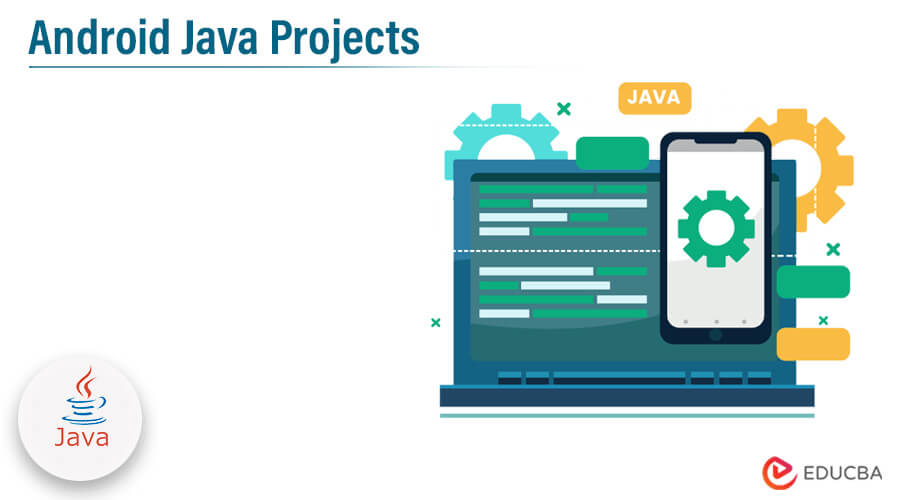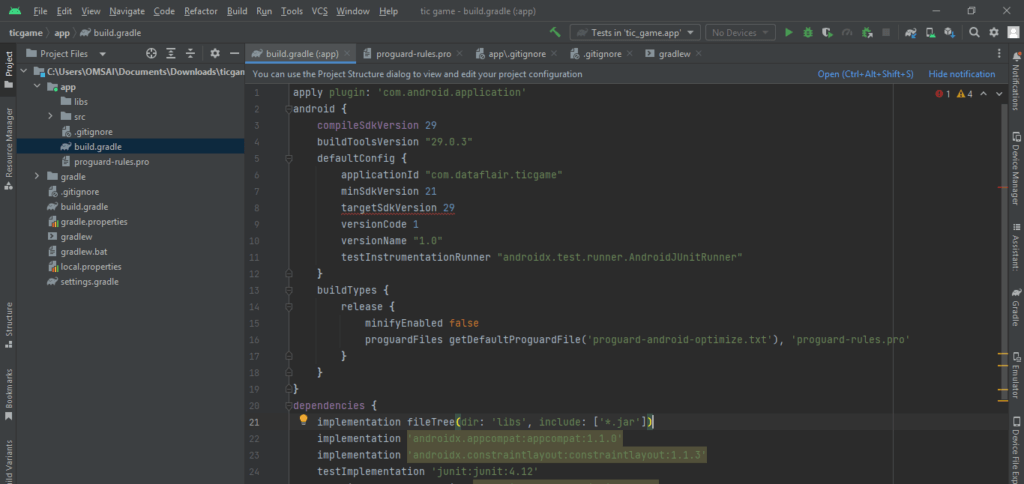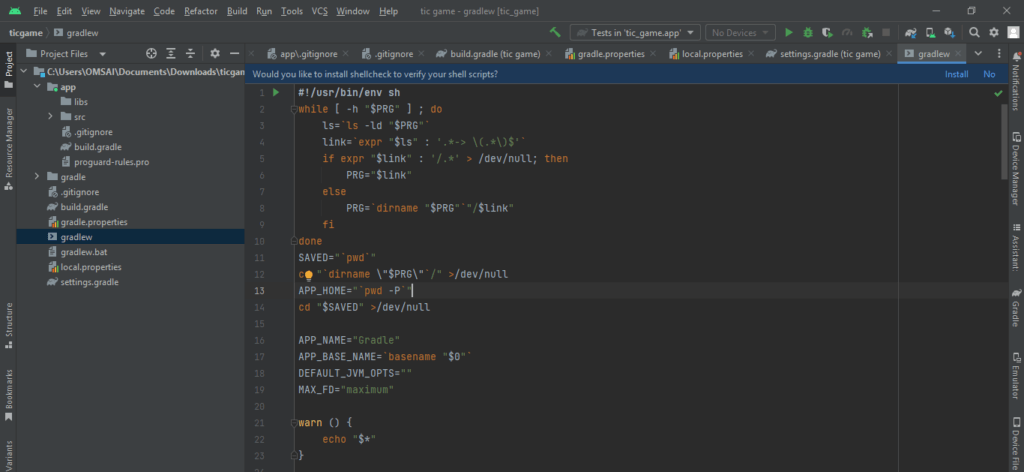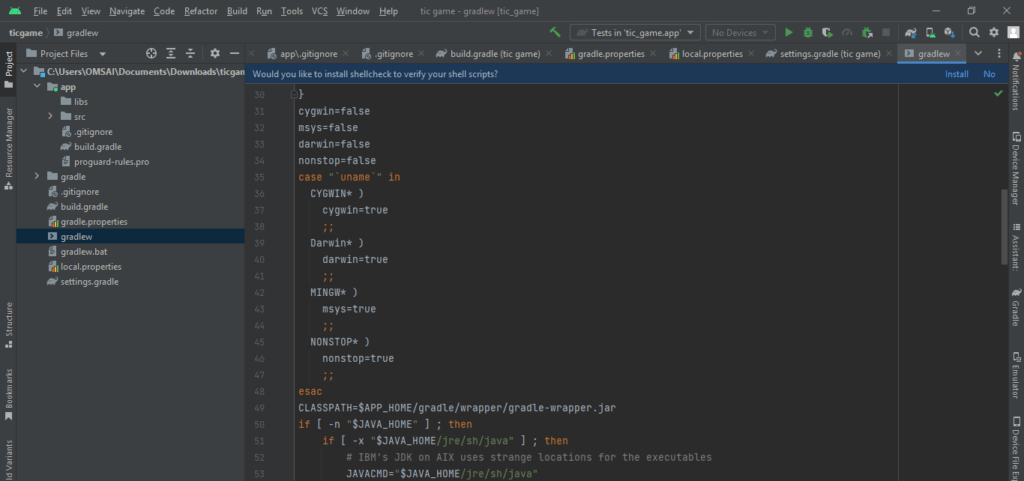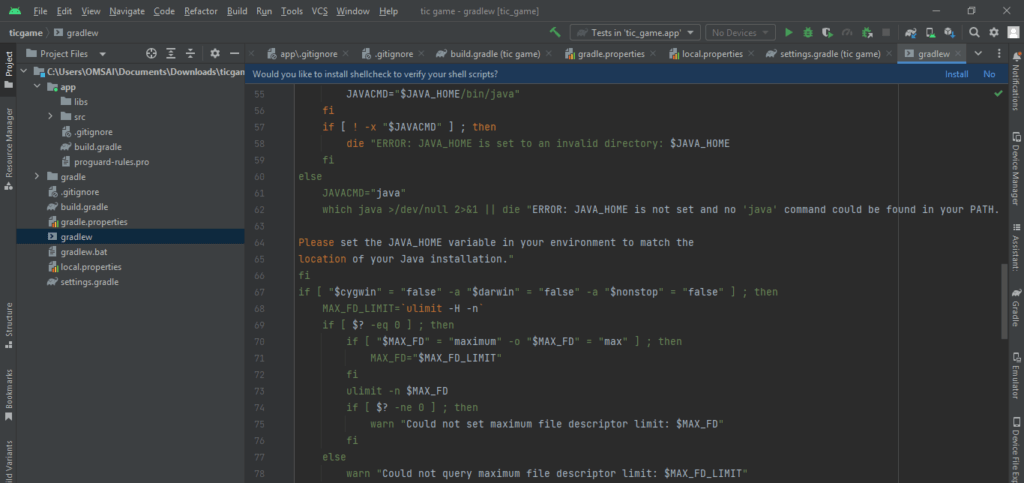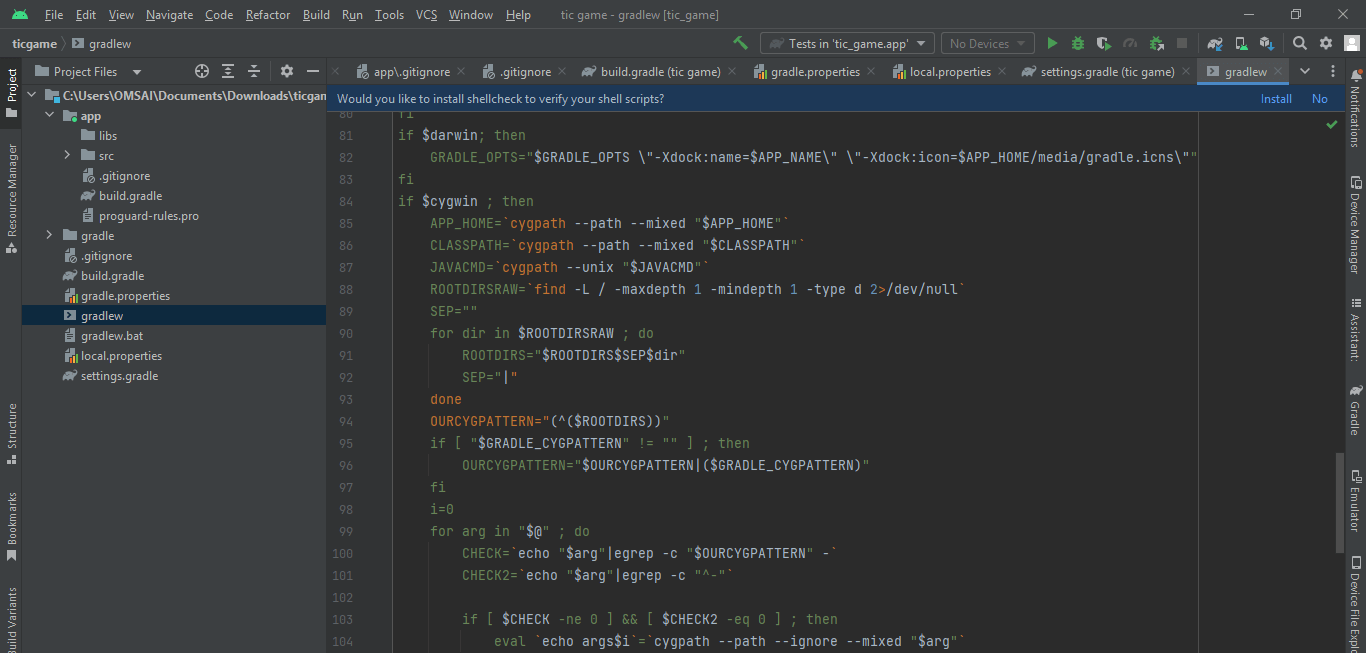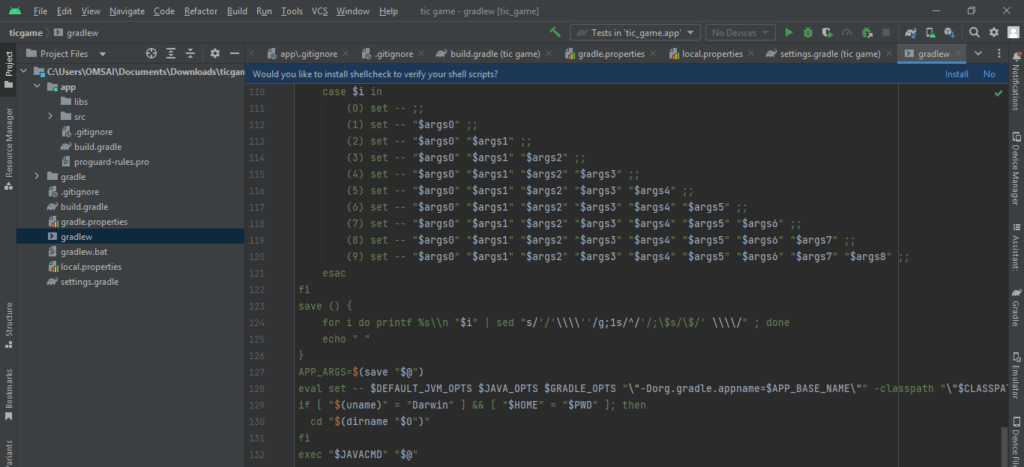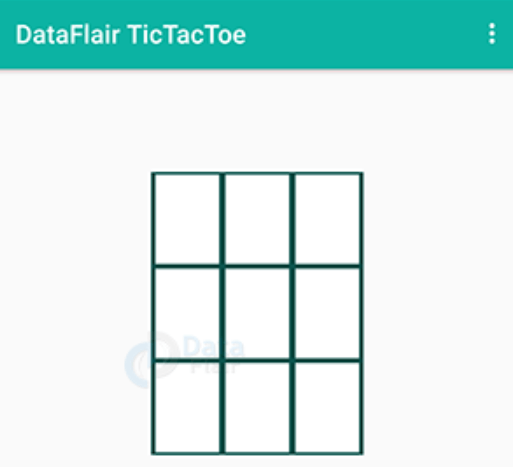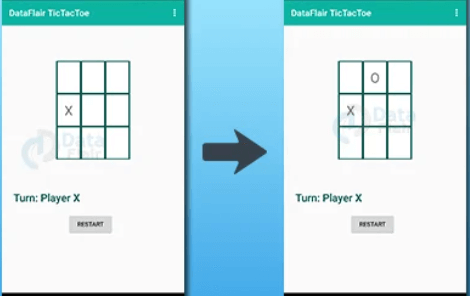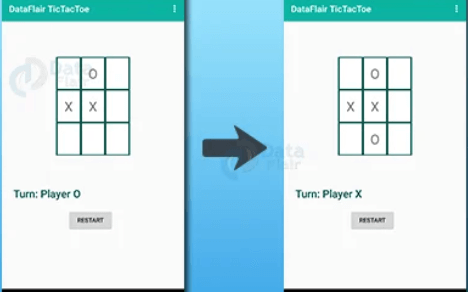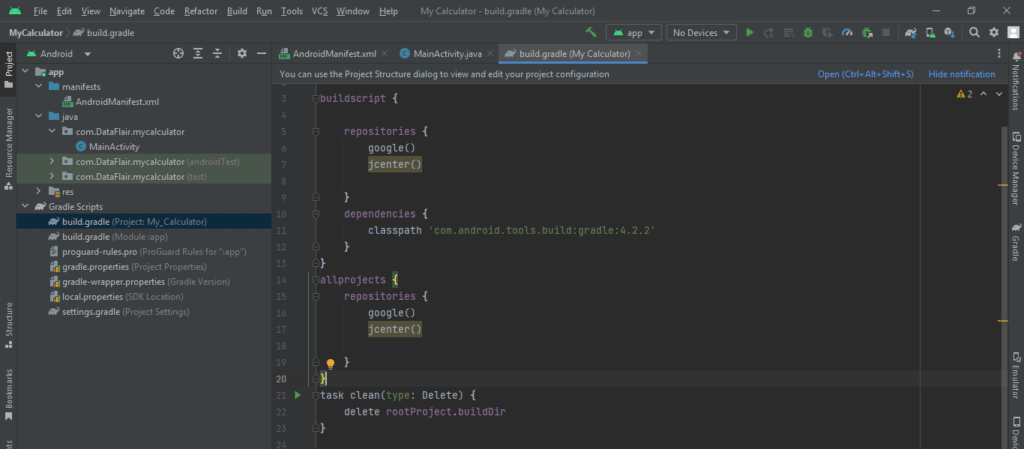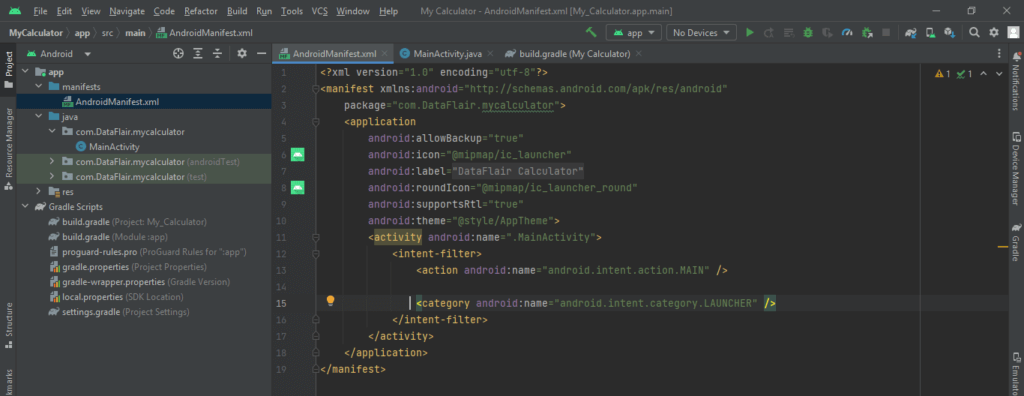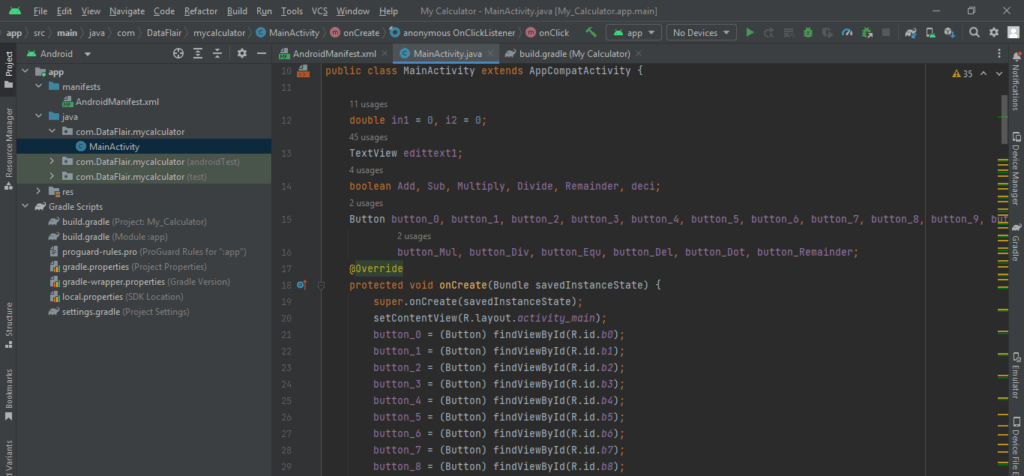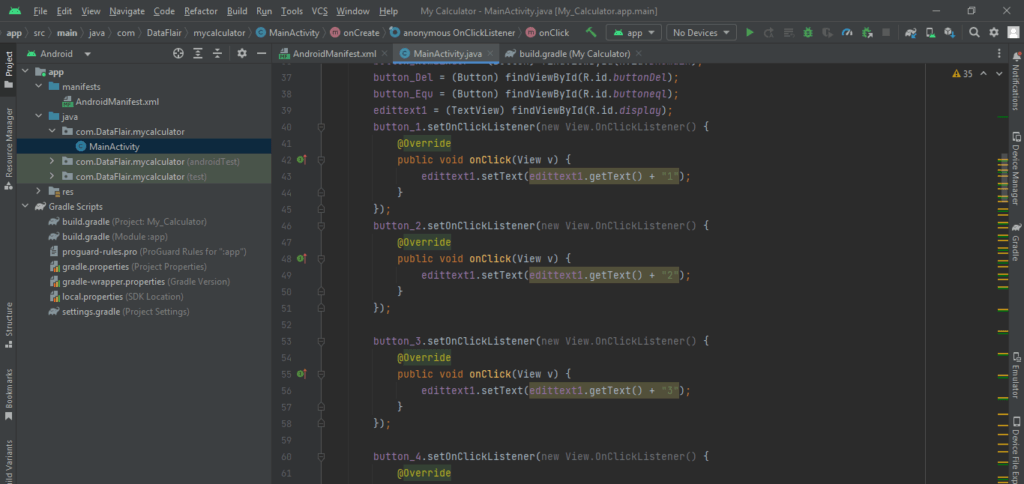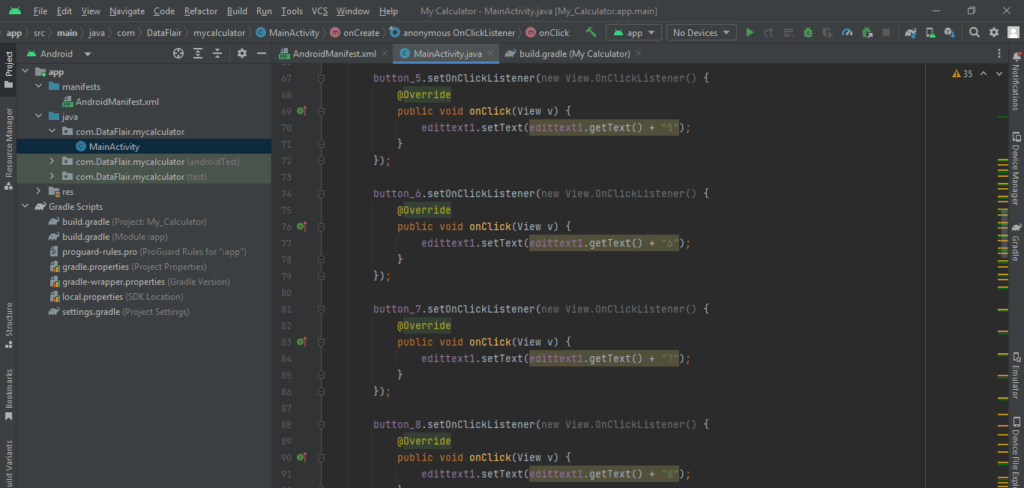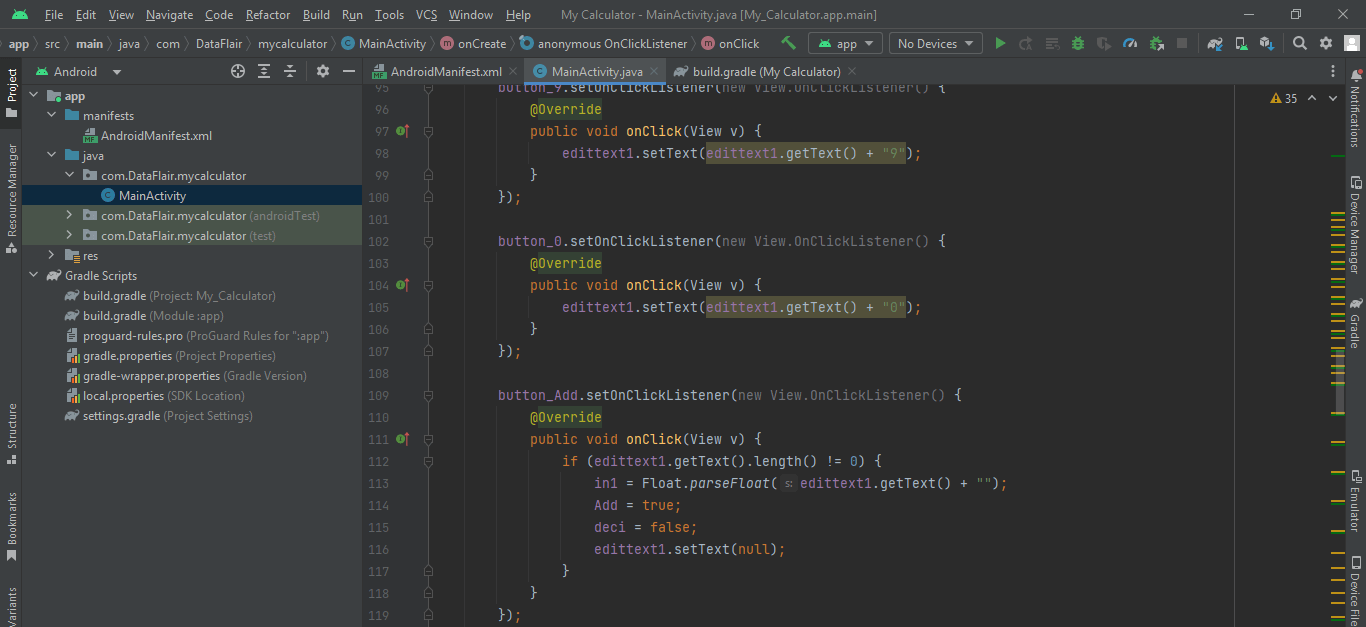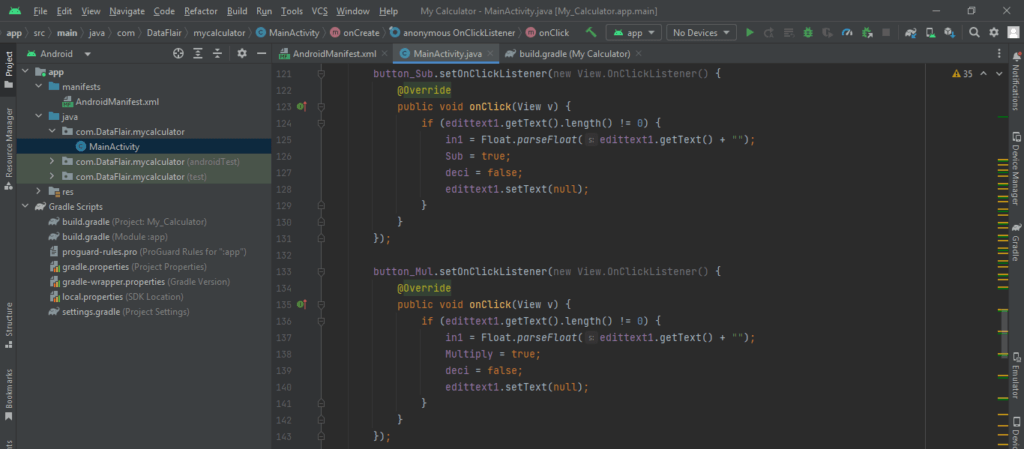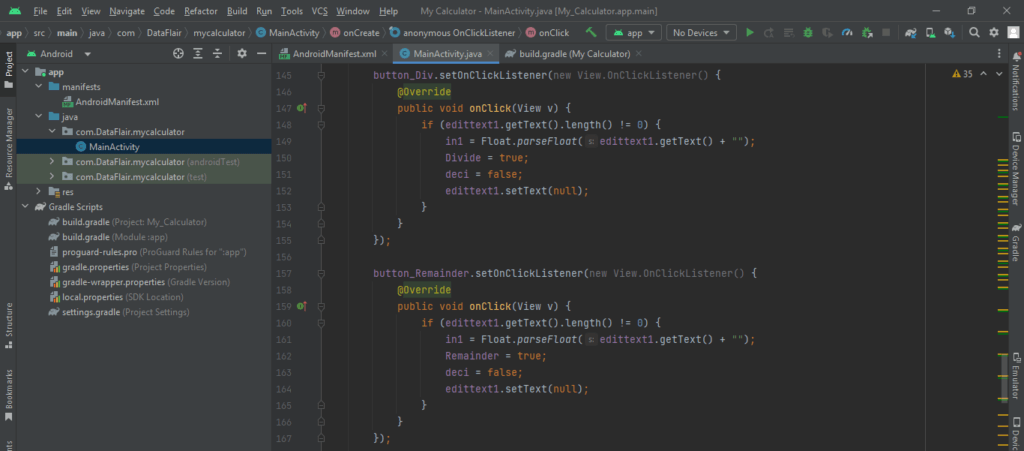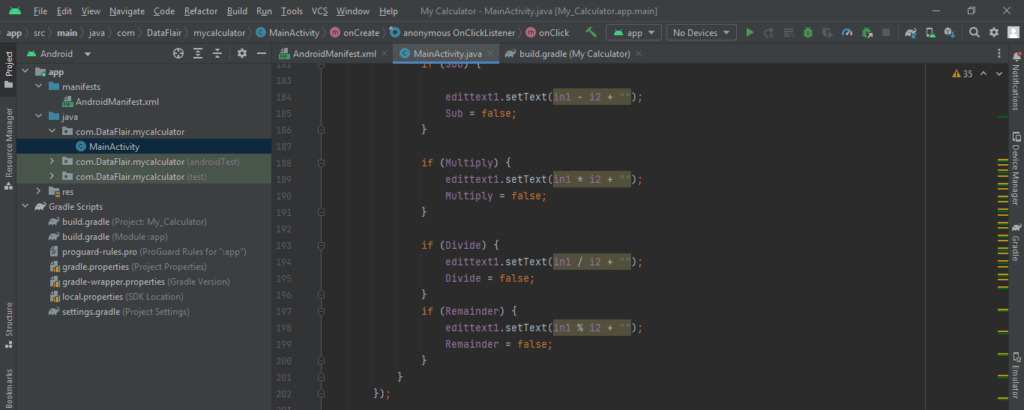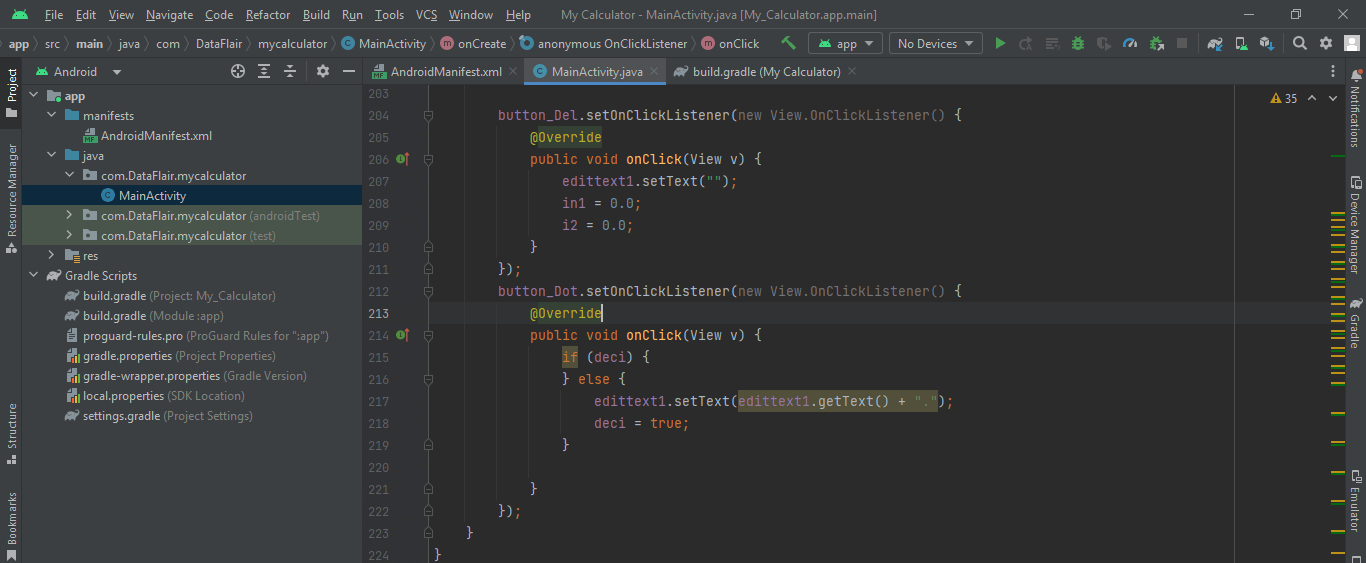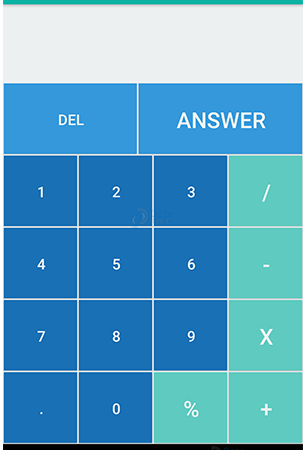Updated July 4, 2023
Definition of Android Java Projects
Android Java projects are used on mobile and tablet. As we know, android is an open-source OS. We can implement Android projects using Java. We can develop our project ideas and create new applications using android java projects. The Android Java projects contain multiple ideas; we can choose a good idea to implement the Android projects. Android Java projects are widely used.
Introduction to Android Java Projects
We can create simple as well as advanced projects in Android. Android contains the feature of NFC, which allows electric devices which easily interact over a short distance. Android also supports multiple keywords, and it is very easy to install. Android contains the interactive and beautiful UI of our Android Java applications.
We can create Android Java projects in android studio. We need to learn Android development tools to develop Android Java projects. We need to use android studio to support the language of Java. We can also use kotlin in Android, but Java is the most popular language for developing Java Android projects.
Key Takeaways
- In mobile and tablet, android is a very popular OS. We can implement a different type of application to use Java in Android that runs on Android.
- Developing Android projects in Java is vital for any developer because the project contains from beginner to advanced levels.
Best Android Java Projects with Source Code in 2023
There are multiple Android Java projects available.
Below are the android java projects with source code as follows:
1. Tic Tac Toe Project
This is an android java project. In this game, plays two players, and every player will get a chance one after another. This game will contain a grid of 3*3. It will contain a total of 9 cells.
Code:
Build.gradle:
android {
compileSdkVersion 29
buildToolsVersion "29.0.3"
defaultConfig {
applicationId "com.dataflair.ticgame"
minSdkVersion 21
targetSdkVersion 29
versionCode 1
versionName "1.0"
testInstrumentationRunner "androidx.test.runner.AndroidJUnitRunner"
}
buildTypes {
release {
minifyEnabled false
proguardFiles getDefaultProguardFile('proguard-android-optimize.txt'), 'proguard-rules.pro'
}
}
}
dependencies {
implementation fileTree(dir: 'libs', include: ['*.jar'])
implementation 'androidx.appcompat:appcompat:1.1.0'
implementation 'androidx.constraintlayout:constraintlayout:1.1.3'
testImplementation 'junit:junit:4.12'
androidTestImplementation 'androidx.test.ext:junit:1.1.1'
androidTestImplementation 'androidx.test.espresso:espresso-core:3.2.0'
}Gradlew:
while [ …] ; do
ls=`ls -ld "$PRG"`
link=`expr "$ls" : '.*-> \(.*\)$'`
if expr "$link" : '/.*' > /dev/null; then
PRG="$link"
else
PRG=`dirname "$PRG"`"/$link"
fi
done
SAVED="`pwd`"
cd "`dirname \"$PRG\"`/" >/dev/null
APP_HOME="`pwd -P`"
cd "$SAVED" >/dev/null
APP_NAME="Gradle"
APP_BASE_NAME=`basename "$0"`
DEFAULT_JVM_OPTS=""
MAX_FD="maximum"
warn () {
echo "$*"
}
die () {
echo
echo "$*"
echo
exit 1
}
cygwin=false
msys=false
darwin=false
nonstop=false
case "`uname`" in
CYGWIN* )
cygwin=true
;;
Darwin* )
darwin=true
;;
MINGW* )
msys=true
;;
NONSTOP* )
nonstop=true
;;
esac
CLASSPATH=$APP_HOME/gradle/wrapper/gradle-wrapper.jar
…..
JAVACMD="$JAVA_HOME/jre/sh/java"
else
JAVACMD="$JAVA_HOME/bin/java"
fi
if [ ! -x "$JAVACMD" ] ; then
…
fi
else
JAVACMD="java"
…
fi
if [] ; then
MAX_FD_LIMIT=`ulimit -H -n`
if [ $? -eq 0 ] ; then
if […] ; then
MAX_FD="$MAX_FD_LIMIT"
fi
ulimit -n $MAX_FD
if [ $? -ne 0 ] ; then
warn "Not set descriptot: $MAX_FD"
fi
else
warn "Not set descriptor limit: $MAX_FD_LIMIT"
fi
fi
if $darwin; then
GRADLE_OPTS="$GRADLE_OPTS \"-Xdock:name=$APP_NAME\" \"-Xdock:icon=$APP_HOME/media/gradle.icns\""
fi
if $cygwin ; then
APP_HOME=`cygpath --path --mixed "$APP_HOME"`
CLASSPATH=`cygpath --path --mixed "$CLASSPATH"`
JAVACMD=`cygpath --unix "$JAVACMD"`
SEP=""
for dir in $ROOTDIRSRAW ; do
ROOTDIRS="$ROOTDIRS$SEP$dir"
SEP="|"
done
OURCYGPATTERN="(^($ROOTDIRS))"
if [ "$GRADLE_CYGPATTERN" != "" ] ; then
OURCYGPATTERN="$OURCYGPATTERN|($GRADLE_CYGPATTERN)"
fi
i=0
for arg in "$@" ; do
CHECK=`echo "$arg"|egrep -c "$OURCYGPATTERN" -`
CHECK2=`echo "$arg"|egrep -c "^-"`
if [.. ] ; then
eval `echo args$i`=`cygpath --path --ignore --mixed "$arg"`
else
eval `echo args$i`="\"$arg\""
fi
i=$((i+1))
done
case $i in
………
esac
fi
save () {
for i do printf %s\\n "$i" | sed "s/'/'\\\\''/g;1s/^/'/;\$s/\$/' \\\\/" ; done
echo " "
}
APP_ARGS=$(save "$@")
eval set -- $DEFAULT_JVM_OPTS $JAVA_OPTS $GRADLE_OPTS "\"-Dorg.gradle.appname=$APP_BASE_NAME\"" -classpath "\"$CLASSPATH\"" org.gradle.wrapper.GradleWrapperMain "$APP_ARGS"
if [ ….. ]; then
cd "$(dirname "$0")"
fi
exec "$JAVACMD" "$@"Below is the output of the above project. We run the project in android studio as follows.
Output:
2. Calculator Android Java Project
Android is an easy application of Android java project. This application takes user input and performs operations per user requirements. Below is the source code of the calculator android java project as follows.
Code:
Build.grdle:
buildscript {
repositories {
google()
jcenter()
}
dependencies {
classpath 'com.android.tools.build:gradle:4.2.2'
}
}
allprojects {
repositories {
google()
jcenter()
}
}
task clean(type: Delete) {
delete rootProject.buildDir
}AndroidManifest.xml:
<?xml version="1.0" encoding="utf-8"?>
<manifest xmlns:android="http://schemas.android.com/apk/res/android"
package="com.DataFlair.mycalculator">
<application
android:allowBackup="true"
android:icon="@mipmap/ic_launcher"
android:label="@string/app_name"
android:roundIcon="@mipmap/ic_launcher_round"
android:supportsRtl="true"
android:theme="@style/AppTheme">
<activity android:name=".MainActivity">
<intent-filter>
<action android:name="android.intent.action.MAIN" />
<category android:name="android.intent.category.LAUNCHER" />
</intent-filter>
</activity>
</application>
</manifest>MainActivity.java:
public class MainActivity extends AppCompatActivity {
TextView edittext1;
…….
@Override
protected void onCreate(Bundle savedInstanceState) {
super.onCreate(savedInstanceState);
setContentView(R.layout.activity_main);
button_0 = (Button) findViewById(R.id.b0);
button_1 = (Button) findViewById(R.id.b1);
button_2 = (Button) findViewById(R.id.b2);
button_3 = (Button) findViewById(R.id.b3);
button_4 = (Button) findViewById(R.id.b4);
button_5 = (Button) findViewById(R.id.b5);
button_6 = (Button) findViewById(R.id.b6);
button_7 = (Button) findViewById(R.id.b7);
button_8 = (Button) findViewById(R.id.b8);
button_9 = (Button) findViewById(R.id.b9);
button_Dot = (Button) findViewById(R.id.bDot);
button_Add = (Button) findViewById(R.id.badd);
button_Sub = (Button) findViewById(R.id.bsub);
button_Mul = (Button) findViewById(R.id.bmul);
button_Div = (Button) findViewById(R.id.biv);
button_Remainder = (Button) findViewById(R.id.BRemain);
button_Del = (Button) findViewById(R.id.buttonDel);
button_Equ = (Button) findViewById(R.id.buttoneql);
edittext1 = (TextView) findViewById(R.id.display);
button_1.setOnClickListener(new View.OnClickListener() {
@Override
public void onClick(View v) {
edittext1.setText(edittext1.getText() + "1");
}
});
button_2.setOnClickListener(new View.OnClickListener() {
@Override
public void onClick(View v) {
edittext1.setText(edittext1.getText() + "2");
}
});
button_3.setOnClickListener(new View.OnClickListener() {
@Override
public void onClick(View v) {
edittext1.setText(edittext1.getText() + "3");
}
});
button_4.setOnClickListener(new View.OnClickListener() {
@Override
public void onClick(View v) {
edittext1.setText(edittext1.getText() + "4");
}
});
button_5.setOnClickListener(new View.OnClickListener() {
@Override
public void onClick(View v) {
edittext1.setText(edittext1.getText() + "5");
}
});
button_6.setOnClickListener(new View.OnClickListener() {
@Override
public void onClick(View v) {
edittext1.setText(edittext1.getText() + "6");
}
});
button_7.setOnClickListener(new View.OnClickListener() {
@Override
public void onClick(View v) {
edittext1.setText(edittext1.getText() + "7");
}
});
button_8.setOnClickListener(new View.OnClickListener() {
@Override
public void onClick(View v) {
edittext1.setText(edittext1.getText() + "8");
}
});
button_9.setOnClickListener(new View.OnClickListener() {
@Override
public void onClick(View v) {
edittext1.setText(edittext1.getText() + "9");
}
});
button_0.setOnClickListener(new View.OnClickListener() {
@Override
public void onClick(View v) {
edittext1.setText(edittext1.getText() + "0");
}
});
button_Add.setOnClickListener(new View.OnClickListener() {
@Override
public void onClick(View v) {
if (edittext1.getText().length() != 0) {
in1 = Float.parseFloat(edittext1.getText() + "");
Add = true;
deci = false;
edittext1.setText(null);
}
}
});
button_Sub.setOnClickListener(new View.OnClickListener() {
@Override
public void onClick(View v) {
if (edittext1.getText().length() != 0) {
in1 = Float.parseFloat(edittext1.getText() + "");
Sub = true;
deci = false;
edittext1.setText(null);
}
}
});
button_Mul.setOnClickListener(new View.OnClickListener() {
@Override
public void onClick(View v) {
if (edittext1.getText().length() != 0) {
in1 = Float.parseFloat(edittext1.getText() + "");
Multiply = true;
deci = false;
edittext1.setText(null);
}
}
});
button_Div.setOnClickListener(new View.OnClickListener() {
@Override
public void onClick(View v) {
if (edittext1.getText().length() != 0) {
in1 = Float.parseFloat(edittext1.getText() + "");
Divide = true;
deci = false;
edittext1.setText(null);
}
}
});
button_Remainder.setOnClickListener(new View.OnClickListener() {
@Override
public void onClick(View v) {
if (edittext1.getText().length() != 0) {
in1 = Float.parseFloat(edittext1.getText() + "");
Remainder = true;
deci = false;
edittext1.setText(null);
}
}
});
button_Equ.setOnClickListener(new View.OnClickListener() {
@Override
public void onClick(View v) {
if (Add || Sub || Multiply || Divide || Remainder) {
i2 = Float.parseFloat(edittext1.getText() + "");
}
if (Add) {
edittext1.setText(in1 + i2 + "");
Add = false;
}
if (Sub) {
edittext1.setText(in1 - i2 + "");
Sub = false;
}
if (Multiply) {
edittext1.setText(in1 * i2 + "");
Multiply = false;
}
if (Divide) {
edittext1.setText(in1 / i2 + "");
Divide = false;
}
if (Remainder) {
edittext1.setText(in1 % i2 + "");
Remainder = false;
}
}
});
button_Del.setOnClickListener(new View.OnClickListener() {
@Override
public void onClick(View v) {
edittext1.setText("");
in1 = 0.0;
i2 = 0.0;
}
});
button_Dot.setOnClickListener(new View.OnClickListener() {
@Override
public void onClick(View v) {
if (deci) {
} else {
edittext1.setText(edittext1.getText() + ".");
deci = true;
}
}
});
}
}Below is the output of the above project. We run the project in android studio as follows.
Output:
Android Java Projects Ideas
Android Java projects contain multiple ideas. Below are the ideas for Android Java projects as follows.
- Quiz application – This android java project quiz application provides a platform for online conversation. It has many questions and covers a wide range of subjects.
- Temperature converter – Mathematical formulas are required for this type of project, which creates conversion tools. The output on the screen has been converted to use the user’s input value.
- Billing application – The primary goal of this Android application design is to automate the electricity billing process fully. We can automate the bill-paying process in this application. We can make this application in an Android project.
- Chat application – The chat application can be used in various ways. Online chat is a feature of this application. We have the necessary Java and Android network libraries to build this application.
- Digital clock – Implementing the digital clock is another android java project. We needed to have experience with UI design to implement this project. We possess the necessary expertise in both event management and periodic execution procedures.
- Online quiz android application – Android and Java-based platform used to develop a forum for online discussion; this system includes many questions and covers a wide range of subjects.
- Online survey project – The online survey is carried out to use this program. With the help of the Android and Java Foundation, this project is utilized to build the online survey.
- Smart city application – This is a popular Android and Java web-based software program that stores all the information about the city. The smart city project contains the address to develop an integrated platform for information storage.
- Currency converter application – This is an Android application that converts currencies. To determine how much in another currency is equal to a certain quantity in one currency, we must first determine the conversion rate.
- Budget tracker – To set up a budget tracker is quite easy. The section to earn and expense must be added. We can scale up or down the project as needed to make it a good project.
Conclusion
Android also supports multiple keywords, and it is very easy to install. Android contains the interactive and beautiful UI of our Android Java applications. Android Java projects are used in mobile and tablet applications. As we know, android is an open-source OS. Android is a modified version of the Linux kernel. We can implement the Android projects to use Java.
Recommended Articles
We hope that this EDUCBA information on “Android Java Projects” was beneficial to you. You can view EDUCBA’s recommended articles for more information.
